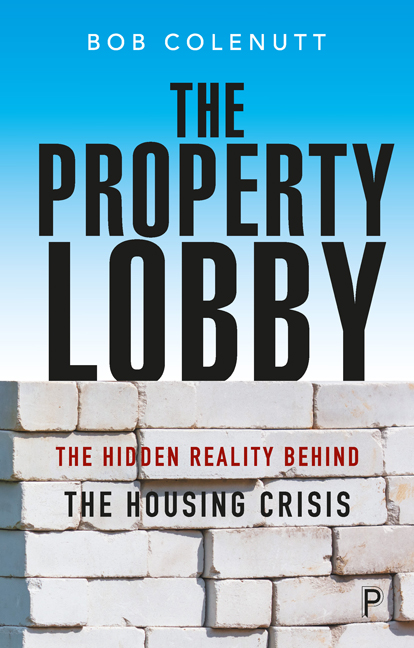Book contents
- Frontmatter
- Dedication
- Contents
- Acknowledgements
- Preface
- 1 The Finance–Housebuilding Complex
- 2 The Housing Shortage
- 3 The Housebuilding Business
- 4 Financing Housing Investment
- 5 The Property Lobby
- 6 Shaping National Housing and Planning Policy
- 7 The 2008 Financial Crash Continues
- 8 The Housebuilders and Affordable Housing
- 9 How the Social and Affordable Housing Sectors Got Swallowed
- 10 Local Case Studies
- 11 Unblocking the Impasse
- Postscript
- Notes
- References
- Index
4 - Financing Housing Investment
Published online by Cambridge University Press: 10 March 2021
- Frontmatter
- Dedication
- Contents
- Acknowledgements
- Preface
- 1 The Finance–Housebuilding Complex
- 2 The Housing Shortage
- 3 The Housebuilding Business
- 4 Financing Housing Investment
- 5 The Property Lobby
- 6 Shaping National Housing and Planning Policy
- 7 The 2008 Financial Crash Continues
- 8 The Housebuilders and Affordable Housing
- 9 How the Social and Affordable Housing Sectors Got Swallowed
- 10 Local Case Studies
- 11 Unblocking the Impasse
- Postscript
- Notes
- References
- Index
Summary
In Chapter 3, we looked at the housebuilding business from the point of view of the volume housebuilders. Now, we need to look behind the builders and the developers at the financial institutions and investors that fund them and set the conditions under which they operate. The structure and practices of property investor groups have immense influence over the availability and cost of housing in the UK and, as I shall argue, are a principal barrier to resolving the housing crisis. This chapter therefore charts the growth of the investors and finance houses behind the UK land and property market, and examines the nature of their power and vested interests.
It is important to emphasise, as many others have done, that the UK economy is heavily dependent on land and property, and on the housing market in particular. Ryan Collins et al (2017: 160) say in their book on the economics of land and housing: ‘The wider economy remains intimately linked to the value of land and property both through the provision of liquidity to SMEs [small- and mediumsized enterprises] via commercial real estate as well as the collateral and wealth channels that play a key role in supporting consumption’. Housing, in particular, is now a principal underpinning of the banking system and of corporate borrowing. This is why ‘successive governments have sought to increase or at least maintain both house prices and home ownership levels’ (Ryan- Collins et al, 2017: 147). The housing market is thus used by the government to regulate economic growth and stimulate domestic consumption.
The opportunity for windfall profits made on land has a particular attraction to speculators. Their activities have led to bouts of either over- or under- building and price fluctuations, which make the economy particularly susceptible to property booms and busts. Larry Elliot, economics correspondent for The Guardian, summed up the unstable nature of the UK economic model as follows: ‘An economic model that cannot function without repeated injections of property inflation is built on shaky foundations’ (Elliott, 2018).
The UK economy is not the only economy that suffers in this way.
- Type
- Chapter
- Information
- The Property LobbyThe Hidden Reality behind the Housing Crisis, pp. 47 - 56Publisher: Bristol University PressPrint publication year: 2020

